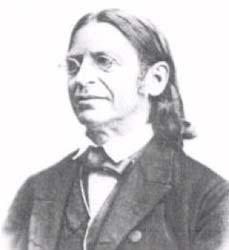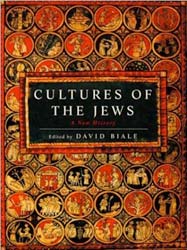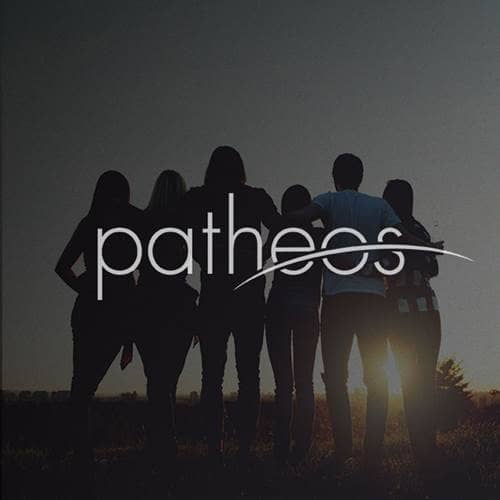- Trending:
- Pope Leo Xiv
- |
- Israel
- |
- Trump
- |
- Social Justice
- |
- Peace
- |
- Love

RELIGION LIBRARY
Judaism
Historical Perspectives
The historical study of Judaism grew out of the 19th-century German school of thought, Wissenschaft des Judentums, the "science" or academic study of Judaism. This group of Jewish scholars was attempting to legitimize the study of Judaism in the western Christian canon, or essentially put Judaism on the map. By portraying Jewish thought with their own methodologies and rubrics, they were mounting a multicultural challenge to Christian hegemony. Indeed as the historian Susannah Heschel has argued, the scholars of the Wissenschaft des Judentums were constructing a "counterhistory" of Christian thought and culture. They argued that Jesus was not the semi-divine figure who established Christianity in opposition to a legalistic 1st-century Judaism, but rather an ordinary Pharisee who promoted the democratization and liberalization of Judaism.  Moreover, the 19th-century German scholar Abraham Geiger claimed that the Christian beliefs in Jesus' virgin birth, incarnation, and resurrection were later theological inventions influenced by pagan philosophy. Instead of Christianity being responsible for the birth of ethical monotheism, Geiger argued that Judaism bequeathed this universal idea to the West.
Moreover, the 19th-century German scholar Abraham Geiger claimed that the Christian beliefs in Jesus' virgin birth, incarnation, and resurrection were later theological inventions influenced by pagan philosophy. Instead of Christianity being responsible for the birth of ethical monotheism, Geiger argued that Judaism bequeathed this universal idea to the West.
One could argue that as a result of this counter-offensive against Christianity, the Jewish scholars of the Wissenschaft des Judentums essentially invented the term "Judaism" as an academic discipline to be studied. Ironically, while the Jewish retelling of Christian origins from a Jewish perspective was self-empowering for the Wissenschaft des Judentums, at the same time it rendered modern Jewish identity dependent to some extent upon Christian theology. In many ways, these German scholars had essentialized Judaism by reducing Jewish culture to a universal idea of ethical monotheism serving apologetic ends. In order to defend themselves against a Christian hegemonic culture, the members of the Wissenschaft des Judentums needed to define Judaism as a concrete set of religious ideas that could be understood rationally by historical and philological methods. This was in sharp contrast to Christianity, which, they argued, was a pagan offshoot of Judaism based on superstitious beliefs in a virgin birth, incarnation, and resurrection.
Yet in the process of rationalizing Judaism and defending its contribution to history, these scholars swept its mystical elements under the rug by purposely ignoring Kabbalah or Jewish mysticism, while negating Jewish nationalism for the sake of acceptance in the non-Jewish world. As a result of this apologetic enterprise, Judaism gained access into the western Christian canon on its own terms, yet in the process, may have lost its soul. These German scholars appeared to transform Jewish culture from a living religious community into a theoretical object of historical analysis.
This set the stage for the development of Jewish Studies in the 1960s as an academic discipline in America. Just as Jews were becoming more fully integrated into American society, American scholars of Jewish Studies wanted their discipline to become part of the same western canon that their German forbearers had originally challenged in the 19th century. Ironically by the early 1990s, strange bedfellows emerged as the multiculturalists and feminists on the left began to lump Jewish Studies together with the white Judeo-Christian majority responsible for patriarchy, while those Jewish Studies scholars on the right clung to the universalist ideals of the Enlightenment, resisting multiculturalism. In essence, these Jewish scholars may be perceived as insiders to a Christian monoculture that they originally co-opted as outsiders, a status with which they still identify because of their history as a marginalized "other."
 In response to this Jewish cultural ambiguity, a group of Jewish Studies scholars has recently emerged that is engaged in what historian David Biale has labeled "deconstructive apologetics." On the one hand, these scholars have waged an external defense of Judaism from those multiculturalists and feminists on the left who blame Jews for patriarchy, while at the same time engaging in an internal polemic against those modernist Jewish proponents of a patriarchal rabbinic framework who portray Jewish history monolithically. These scholars have accomplished this "double polemic" as it were, by developing a new type of historiography referred to as "Jewish cultural history," in which they deconstruct the master narratives of Jewish history that have reduced Jewish identity to a single essence and drawn sharp distinctions between Judaism and other cultures. This approach to history grows out of the interdisciplinary methodology of cultural studies that no longer views cultures as internally consistent wholes, but rather fragmentary and indeterminate, possessing porous boundaries.
In response to this Jewish cultural ambiguity, a group of Jewish Studies scholars has recently emerged that is engaged in what historian David Biale has labeled "deconstructive apologetics." On the one hand, these scholars have waged an external defense of Judaism from those multiculturalists and feminists on the left who blame Jews for patriarchy, while at the same time engaging in an internal polemic against those modernist Jewish proponents of a patriarchal rabbinic framework who portray Jewish history monolithically. These scholars have accomplished this "double polemic" as it were, by developing a new type of historiography referred to as "Jewish cultural history," in which they deconstruct the master narratives of Jewish history that have reduced Jewish identity to a single essence and drawn sharp distinctions between Judaism and other cultures. This approach to history grows out of the interdisciplinary methodology of cultural studies that no longer views cultures as internally consistent wholes, but rather fragmentary and indeterminate, possessing porous boundaries.
The Jewish cultural historian breaks down the term "Jew" into multiple and contradictory identities including religious, ethnic, and nationalist dimensions, which may be further broken down into Orthodox or traditional, Reform or liberal, secular, Ashkenazi or Eastern European descent, Sephardi or Spanish descent, male and female. Moreover, this approach to Jewish history challenges conventional distinctions between unity and diversity, monotheism vs. polytheism, isolation vs. assimilation, power vs. powerlessness, particular vs. universal, elite vs. popular, and tradition vs. modernity, by uncovering their continual, albeit uneasy coexistence with one another.
These conflicting yet coexisting aspects of Jewish history illustrate an ongoing dialectic between the idea of one Jewish people with a unified religion and culture originating in the biblical period and a history of multiple communities and cultures. Ultimately, one could argue that there is a "double discursive" process at work in Jewish history. To one degree or another, Jews throughout history have asserted that they possess a common national biography and culture. However this assertion about a separate and unified Jewish culture has conflicted with an ongoing construction of religious identities through intercultural dialogue. Regardless, both the ideal and reality of Jewish history are true in the sense that Jews have always defined themselves as unique when attempting to position themselves in relation to the non-Jewish world.
Study Questions:
1. Why did the historical study of Judaism develop?
2. How is Judaism bound to Christianity?
3. How have “deconstructive apologetics” changed the course of Judaism?
4. Why is identity important to Judaism?










